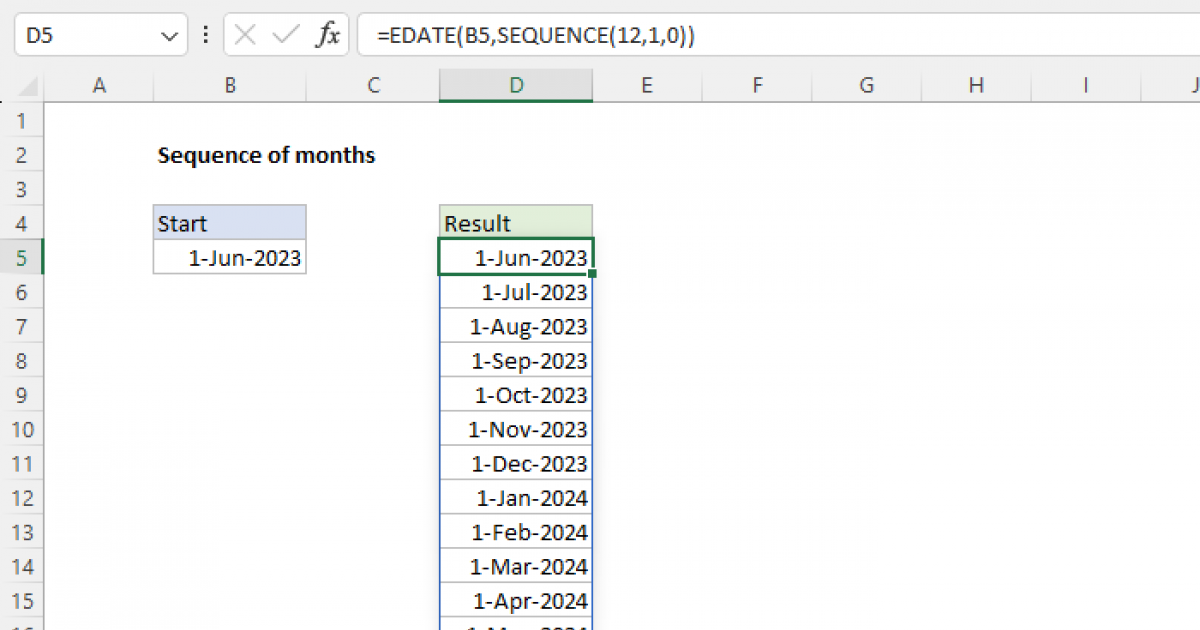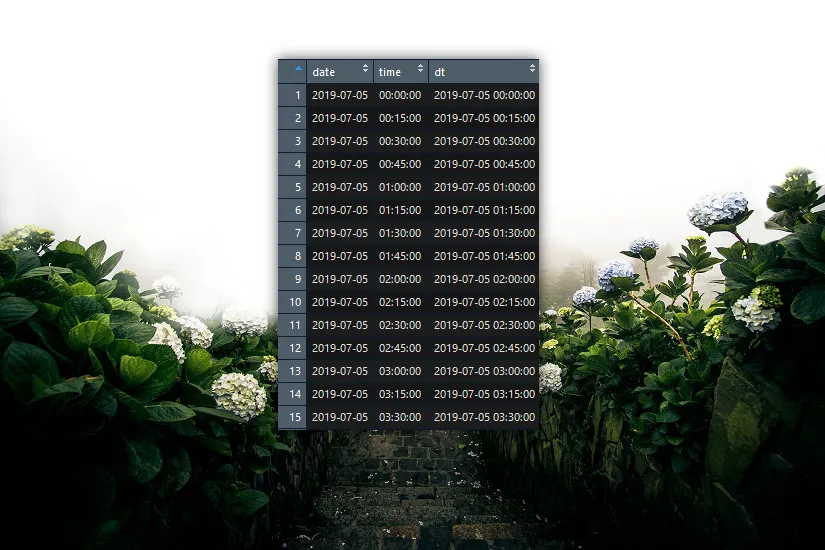Generate A Sequence Of Months And Years In R
Generate A Sequence Of Months And Years In R - I think this is most elegantly solved by taking the day of the month component out of the equation while you are generating the. A character string, containing one of day, week, month, quarter or. A number, taken to be in days. Generate chron or dates sequences description. Generate a regular sequence of dates. Using the generic seq function, we can support dates and many date sequence options. Usage ## s3 method for class 'dates' seq(from, to, by =. R provides a simple way to create sequences of dates. By can be specified in several ways. Whether you’re analyzing financial data, tracking trends over time, or forecasting future events, understanding how to generate date sequences.
I think this is most elegantly solved by taking the day of the month component out of the equation while you are generating the. Usage ## s3 method for class 'dates' seq(from, to, by =. A character string, containing one of day, week, month, quarter or. Whether you’re analyzing financial data, tracking trends over time, or forecasting future events, understanding how to generate date sequences. Generate chron or dates sequences description. By can be specified in several ways. Generate a regular sequence of dates. R provides a simple way to create sequences of dates. Using the generic seq function, we can support dates and many date sequence options. A number, taken to be in days.
A character string, containing one of day, week, month, quarter or. Usage ## s3 method for class 'dates' seq(from, to, by =. Whether you’re analyzing financial data, tracking trends over time, or forecasting future events, understanding how to generate date sequences. A number, taken to be in days. Generate chron or dates sequences description. By can be specified in several ways. Generate a regular sequence of dates. Using the generic seq function, we can support dates and many date sequence options. R provides a simple way to create sequences of dates. I think this is most elegantly solved by taking the day of the month component out of the equation while you are generating the.
plot How to put xaxis in order(Month) in R Stack Overflow
I think this is most elegantly solved by taking the day of the month component out of the equation while you are generating the. Generate a regular sequence of dates. Usage ## s3 method for class 'dates' seq(from, to, by =. Using the generic seq function, we can support dates and many date sequence options. R provides a simple way.
r How to make a bar graph in ggplot that groups months of different
By can be specified in several ways. Whether you’re analyzing financial data, tracking trends over time, or forecasting future events, understanding how to generate date sequences. I think this is most elegantly solved by taking the day of the month component out of the equation while you are generating the. Using the generic seq function, we can support dates and.
GitHub takakishi/AgeinMonthsCalculationR R code to calculate age
I think this is most elegantly solved by taking the day of the month component out of the equation while you are generating the. Generate a regular sequence of dates. R provides a simple way to create sequences of dates. Generate chron or dates sequences description. By can be specified in several ways.
r How can I order the months chronologically in ggplot2 short of
R provides a simple way to create sequences of dates. By can be specified in several ways. Whether you’re analyzing financial data, tracking trends over time, or forecasting future events, understanding how to generate date sequences. Generate a regular sequence of dates. Usage ## s3 method for class 'dates' seq(from, to, by =.
How to Generate a Sequence of Numbers in R with , seq() and rep()
By can be specified in several ways. Usage ## s3 method for class 'dates' seq(from, to, by =. R provides a simple way to create sequences of dates. A character string, containing one of day, week, month, quarter or. Generate chron or dates sequences description.
Sequence of months Excel formula Exceljet
A character string, containing one of day, week, month, quarter or. I think this is most elegantly solved by taking the day of the month component out of the equation while you are generating the. Whether you’re analyzing financial data, tracking trends over time, or forecasting future events, understanding how to generate date sequences. A number, taken to be in.
Create Sequence in R YouTube
Using the generic seq function, we can support dates and many date sequence options. Generate chron or dates sequences description. By can be specified in several ways. Generate a regular sequence of dates. R provides a simple way to create sequences of dates.
How to generate time intervals or date sequence in R
Whether you’re analyzing financial data, tracking trends over time, or forecasting future events, understanding how to generate date sequences. Generate a regular sequence of dates. Usage ## s3 method for class 'dates' seq(from, to, by =. A character string, containing one of day, week, month, quarter or. Generate chron or dates sequences description.
r How to Create comparison bar graph Stack Overflow
Usage ## s3 method for class 'dates' seq(from, to, by =. Generate chron or dates sequences description. R provides a simple way to create sequences of dates. A number, taken to be in days. Generate a regular sequence of dates.
A Character String, Containing One Of Day, Week, Month, Quarter Or.
Generate chron or dates sequences description. Using the generic seq function, we can support dates and many date sequence options. I think this is most elegantly solved by taking the day of the month component out of the equation while you are generating the. Usage ## s3 method for class 'dates' seq(from, to, by =.
Generate A Regular Sequence Of Dates.
By can be specified in several ways. A number, taken to be in days. R provides a simple way to create sequences of dates. Whether you’re analyzing financial data, tracking trends over time, or forecasting future events, understanding how to generate date sequences.









